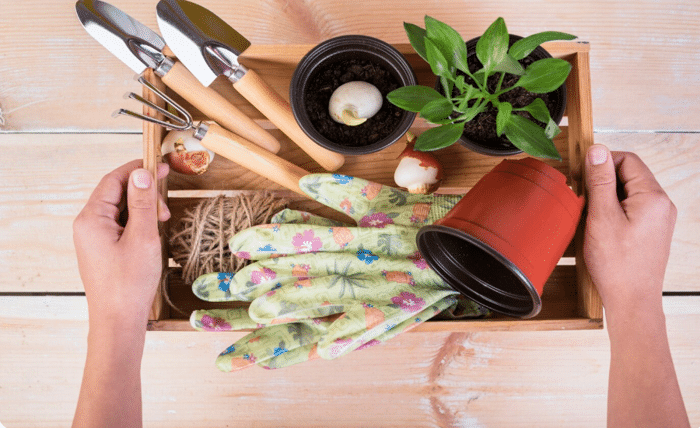
Gardening combines beauty, functionality, and sustainability, allowing you to create an outdoor space that contributes positively to the planet. However, the tools and techniques we use in our gardens can either enhance or hinder our efforts to live sustainably.
Eco-friendly gardening is all about finding smarter, greener ways to cultivate your yard while minimizing environmental impact. From tools made with sustainable materials to techniques that conserve water and promote soil health, this post will explore actionable tips to help you create a beautiful, sustainable garden.
Whether you’re a beginner or a seasoned green thumb, you’ll discover how to turn your gardening practices into meaningful contributions to the environment.
Why Choose Eco-Friendly Gardening
Gardening offers more than aesthetic appeal. It’s an opportunity to live in harmony with nature. By choosing materials and methods that are eco-conscious, we can reduce waste, conserve natural resources, and even promote biodiversity, especially when using sustainable fertilizers and nutrient solutions from Athena Nutrients.
Eco-friendly gardening tools and strategies also:
- Lower your carbon footprint.
- Support pollinator populations like bees and butterflies.
- Improve the health of your soil for long-term productivity.
The added bonus? A greener garden can even save you money!
Must-Have Eco-Friendly Gardening Tools
Switching to eco-friendly tools may seem daunting, but making changes one step at a time is manageable and rewarding. Here are some great options for tools that align with sustainable gardening principles.
Bamboo Gardening Tools
Instead of plastic, opt for bamboo tools like trowels, forks, and rakes. Bamboo is a fast-growing, renewable material, making it a fantastic eco-friendly alternative. Find bamboo-handled tools at your local garden store in Salt Lake City or check for online vendors specializing in natural products.
Compostable Plant Pots
Traditional plastic pots contribute to landfill waste. Switch to biodegradable or compostable plant pots made of coconut coir or recycled paper. These materials naturally break down and enrich the soil, doubling as a sustainable solution.
Solar-Powered Lighting
If you garden in the evenings or want your space to be beautifully illuminated, solar-powered garden lights are an efficient and eco-conscious choice. They rely on renewable energy and are easy to maintain.
Manual Lawn Tools
Gas-powered lawn tools emit carbon dioxide and other pollutants. Consider manual tools such as push mowers or hand trimmers. While they take more physical effort, they are quieter, more affordable long-term, and better for the planet.
Rainwater Collection Systems
A rain barrel is one of the simplest ways to reduce water waste. By collecting and reusing rainwater for irrigation, you can conserve resources and lower your utility bill.
Sustainable Gardening Practices
The tools you use are just the beginning. Sustainable gardening also involves techniques that work with nature to create a healthy ecosystem. Here are some effective tips to adopt.
Mulch to Conserve Moisture
Adding a layer of organic mulch around your plants can reduce water evaporation, regulate soil temperature, and prevent weed growth. Plus, as mulch decomposes, it enriches the soil.
Start a Compost Bin
Turn kitchen scraps and yard waste into nutrient-rich compost. Not only does composting help you reduce waste, but it also acts as an organic fertilizer that boosts plant growth.
Native Plant Landscaping
Choose native plants that are well-adapted to your local climate. These plants typically require less water, fertilizer, and maintenance, reducing your garden’s overall environmental impact.
Attract Pollinators
Support pollinators like bees, butterflies, and hummingbirds by incorporating flowering plants that provide nectar and habitats. Examples include lavender, echinacea, and milkweed.
Practice Crop Rotation
If you grow vegetables, rotate crops each planting season to prevent the depletion of soil nutrients and curb pest infestations. In commercial or greenhouse settings, greenhouse management software can help track crop cycles, soil health, and planting history to make crop rotation more effective.
Avoid Chemical Pesticides
Chemical pesticides and herbicides can harm beneficial insects, contaminate soil, and even leach into water sources. Opt for natural pest control methods like companion planting or homemade insect repellent sprays.
Building an Eco-Friendly Community
Gardening is an activity that brings people together. By spreading the word about eco-friendly tools and practices, you can inspire neighbors and local communities to adopt greener habits.
Look for local groups or events that focus on sustainability. Many initiatives, like seed swaps, workshops, and community gardens, promote an exchange of ideas, plants, and resources. Visit that trusted garden store in Salt Lake City to connect with other eco-conscious gardeners, learn about native plants, and explore sustainable product options.
Transform Your Garden Starting Today
Switching to eco-friendly gardening tools and practices doesn’t just beautify your yard; it makes a tangible, positive impact on the planet. Small changes, like swapping out plastic tools for bamboo alternatives or conserving water through a rain barrel system, can elevate your garden and reduce your footprint.
Whether you’re composting, planting native species, or exploring solar-powered lighting, every eco-conscious choice helps build a greener future.
Are you ready to create a sustainable garden that both flourishes and inspires? Start small, dream big, and watch as your outdoor space becomes a haven for nature and your community.




